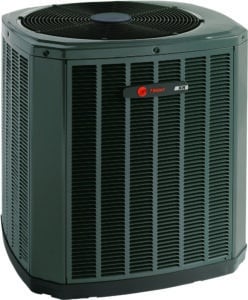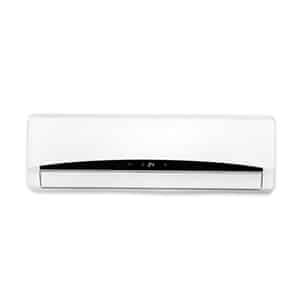Go Green by Upgrading to a Heat Pump
Fighting climate change is important to us here at Reliance®, and we believe that heat pumps can help Canadians operate their homes in a more environmentally sustainable and affordable manner.
Heat pumps both heat and cool your home – replacing your AC in the summer and keeping your family comfortable when it isn’t too cold outside. That makes them one of the easiest ways to help reduce your CO2 emissions without sacrificing comfort.
And since a heat pump is more efficient than a furnace at milder temperatures, it may help you reduce your energy bills too. It can also help reduce your carbon footprint from an energy usage (running the equipment) standpoint. This is because the electricity grid here is fairly clean and produced largely from non-carbon emitted sources.

About Heat Pumps
-
How Does a Heat Pump Work?
-
What Are the Environmental Benefits of a Heat Pump
During the summer, a heat pump keeps your home cool by removing heat from inside your home and moving it outside. It keeps your home comfortable in the spring and fall by removing heat from the air outside and pushing it inside. Your furnace only kicks in when the temperature really drops.
- Heat pumps run on electricity and consequently produce lower CO2 emissions than a furnace that burns natural gas.
- Most electricity in Canada is produced through non-carbon emitting sources, especially in British Columbia and Ontario.
- Since your furnace won’t be running as much, you could significantly reduce your home’s CO2 emissions.
Choosing the Right Heat Pump for Your Home
Not all heat pumps are created equal. Choosing the right heat pump will help it run efficiently, help keep your budget in check and your home feeling comfortable.
Before you choose a heat pump unit, here are a few things to consider:
How big is your home? Do you live in a warmer or colder part of the country? Both are key considerations when determining your unit size and power.
How well is your home insulated? The amount and type of insulation will influence the size and power of the heat pump you will need.
Since a heat pump works to cool and heat your home, there are two ways to measure its energy efficiency. Look at the seasonal energy efficiency ratio (SEER) to check its cooling efficiency, and the heating seasonal performance factor (HSPF) to check its heating efficiency.
The higher the SEER and HSPF rating, the more energy you could save and the lower your operating costs could be.
Should I Rent or Buy My Heat Pump?
Upgrading to a heat pump is an investment in building a greener future. That’s why Reliance makes it easy to rent or buy.
- When you rent, you will enjoy one low, monthly rental payment.
- When you rent, Reliance will service your heat pump at no additional cost.
- When you buy, your upfront investment may increase the value of your home.
Still not sure whether it makes more sense to rent or buy? Learn more about your options by getting in touch with us.
There are many things to consider before buying or renting a heat pump. At Reliance, we are here to help you choose the best option. Book your FREE in-home consultation today to learn more.

Reliance is proud to be Canada’s neighbourhood home comfort specialists. Whether you’re ready to explore our new green home solutions, or you need help keeping your existing heating and cooling system in top shape, just Call on Reliance®.
Why Reliance?
Live customer support 24/7/365
Access to one of Canada’s largest teams of licensed technicians
Wide selection of high-quality products
GPS-based dispatching to get a truck to you fast
No charge for repairs or replacement of your rental equipment**
50+ years of experience servicing the home comfort needs of Canadians
**New equipment does not guarantee energy savings; individual factors such as outdoor temperature, home insulation, run time, time of use and family size affect how much energy can be saved.





